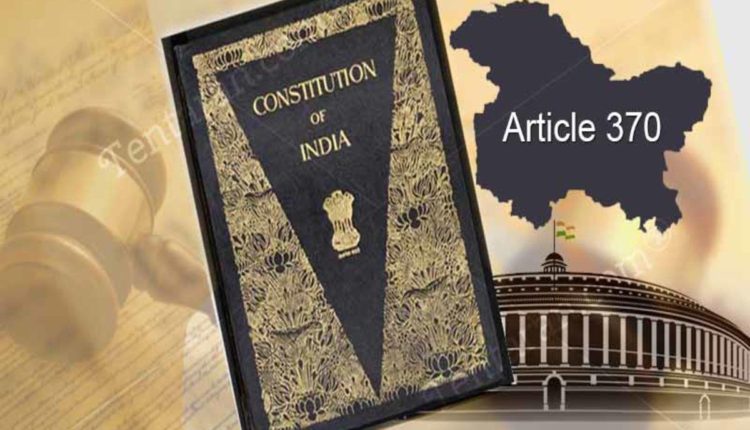Amit Shah announces withdrawal of special status to J-K, Ladakh to be separate UT
Saurabh Kumra
Greater Noida: Union Home Minister Amit Shah on Monday announced in the Rajya Sabha that Article 370, which provided special status to Jammu and Kashmir, has been scrapped. He said that Article 370 was scrapped through Constitution (Application to Jammu and Kashmir) Order 2019, signed by President Ram Nath Kovind.
Here are the ten things that will get abolished after Article 370 get revoked earlier which is use to be important to keep Jammu and Kashmir as a part of India
1 According to the Constitution of India, Article 370 that provides temporary provisions to the state of Jammu and Kashmir, granting it special autonomy.
2. The article says that the provisions of Article 238, which was omitted from the Constitution in 1956 when Indian states were reorganised, shall not apply to the state of Jammu and Kashmir.
3. Dr BR Ambedkar, the principal drafter of the Indian Constitution, had refused to draft Article 370.
4. In 1949, the then Prime Minister Jawaharlal Nehru had directed Kashmiri leader Sheikh Abdullah to consult Ambedkar (then law minister) to prepare the draft of a suitable article to be included in the Constitution.
5. Article 370 was eventually drafted by Gopalaswami Ayyangar
6. Ayyangar was a minister without portfolio in the first Union Cabinet of India. He was also a former Diwan to Maharajah Hari Singh of Jammu and Kashmir
7. Article 370 is drafted in Amendment of the Constitution section, in Part XXI, under Temporary and Transitional Provisions.
8. The original draft explained “the Government of the State means the person for the time being recognised by the President as the Maharaja of Jammu and Kashmir acting on the advice of the Council of Ministers for the time being in office under the Maharaja’s Proclamation dated the fifth day of March, 1948.”
9. On November 15, 1952, it was changed to “the Government of the State means the person for the time being recognised by the President on the recommendation of the Legislative Assembly of the State as the Sadr-i-Riyasat (now Governor) of Jammu and Kashmir, acting on the advice of the Council of Ministers of the State for the time being in office.”
10. Under Article 370 the Indian Parliament cannot increase or reduce the borders of the state.


